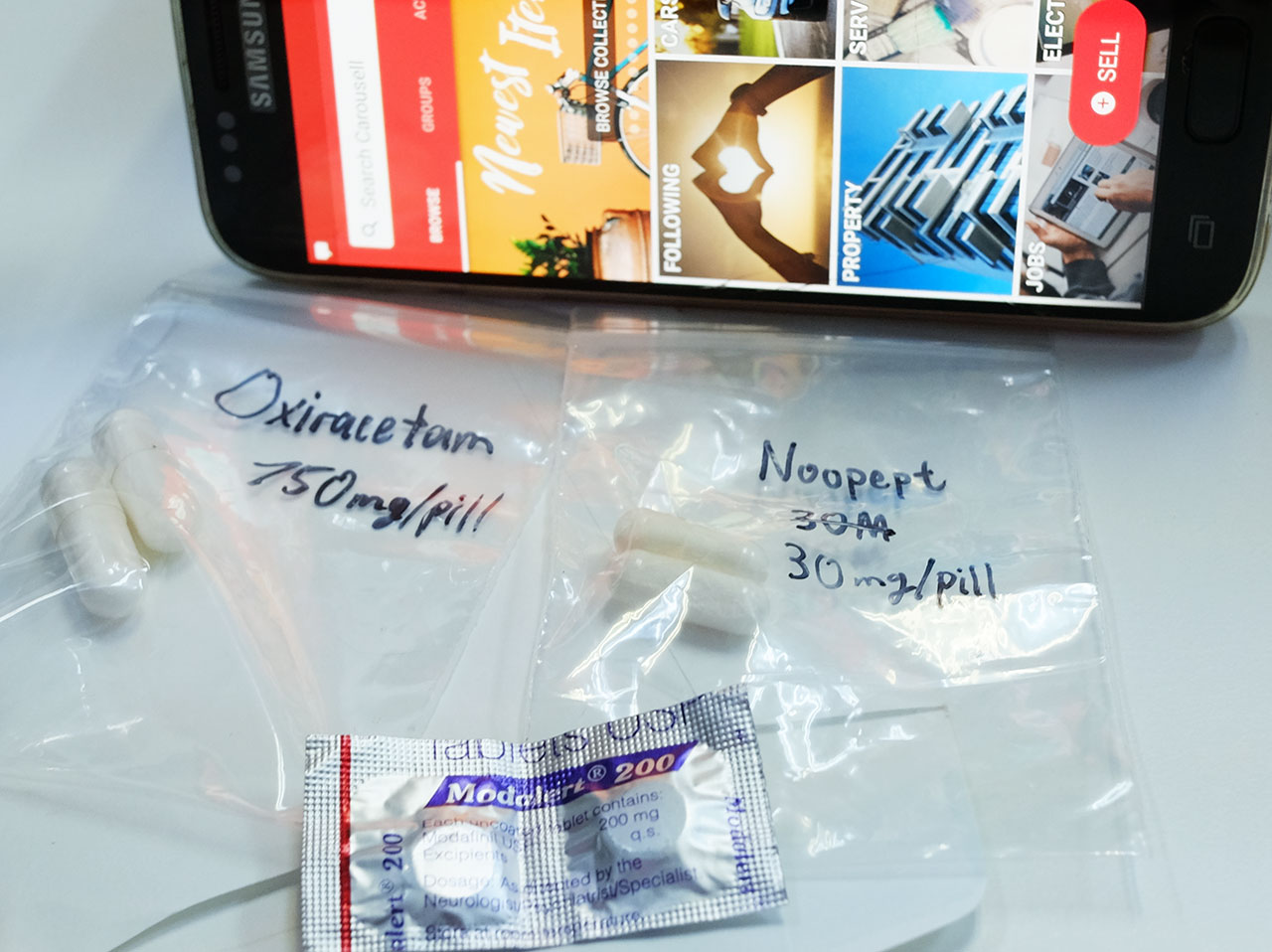Just a few hours earlier, I had found a posting online advertising the sale of “study aids”, also commonly known as “smart drugs”.
These drugs, categorised as nootropics, are touted to enhance cognitive function, thus boosting memory power, concentration and decision-making.
And I didn’t even have to go to the infamous dark web to find them.
All I had to do was launch the Carousell app on my phone and perform a search for the names of known drugs.
The posting that I found was masked as an advertisement for A Level chemistry notes under the category of textbooks. But what gave its true intention away were the specific drugs listed as part of the “H3 organic chemistry” lesson plan.
There were modafinil and piracetam supposedly in stock, if I had understood the seller’s cryptic message correctly.
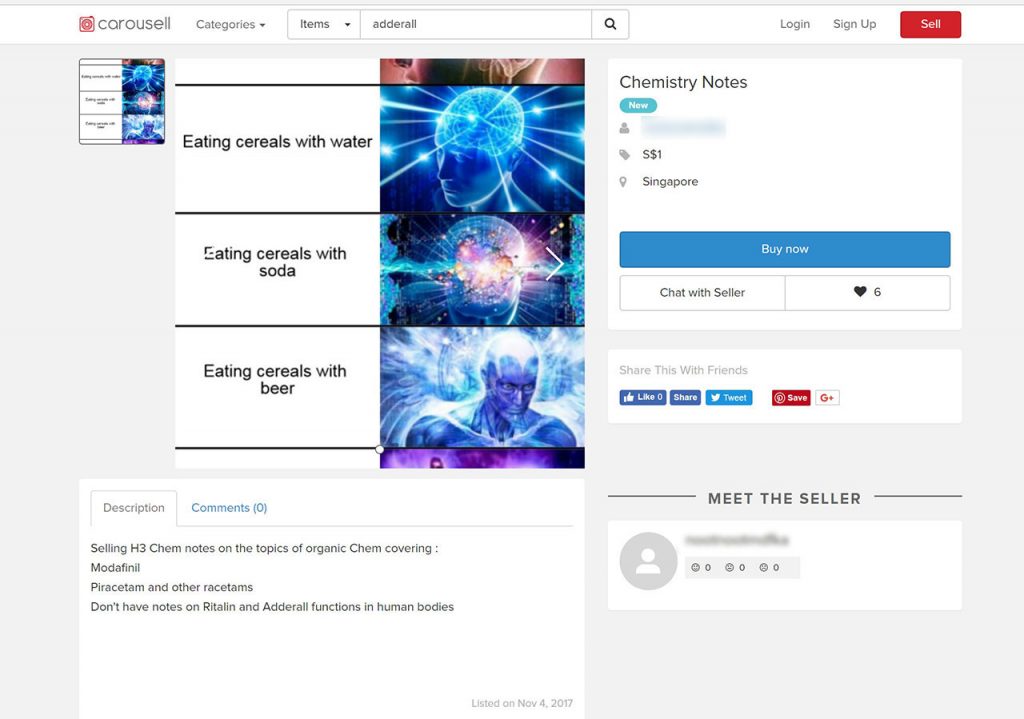
Modafinil is a drug that promotes wakefulness and alertness, and is often used to treat disorders such as narcolepsy (inability to regulate sleep-wake cycles), shift work sleep disorder, and excessive daytime sleepiness.
Piracetam is commonly prescribed for cognitive impairment and dementia in several European countries, and is believed to also help patients with Alzheimer’s disease and traumatic brain injury.
Headaches are a common side effect, while more severe health consequences include heart problems and difficulty in breathing.
Both substances carry severe penalties for unauthorised sales. Anyone caught selling piracetam, a drug listed under the Health Sciences Authority’s (HSA) Poisons Act, is liable to be jailed up to two years and/or fined up to $10,000.
Unauthorised sales of modafinil, which is not approved for therapeutic use here, can lead to a jail term and/or fine up to $50,000.
I contacted the seller through Carousell’s messaging function and asked him to clarify if he was indeed offering the drugs listed for sale. I received a positive reply two hours later with a pricelist of what he had in stock.
Modafinil and racetams (the parent class of drugs that piracetam falls under) cost $4 a pill.
He also had noopept (which works similarly to piracetam), choline (a vitamin B-like nutrient that is taken with noopept and racetams to prevent side effects) and huperzine A (a herbal compound extracted from Chinese club moss that is sometimes prescribed to treat Alzheimer’s). These cost in the range of $3 to $5 a pop.
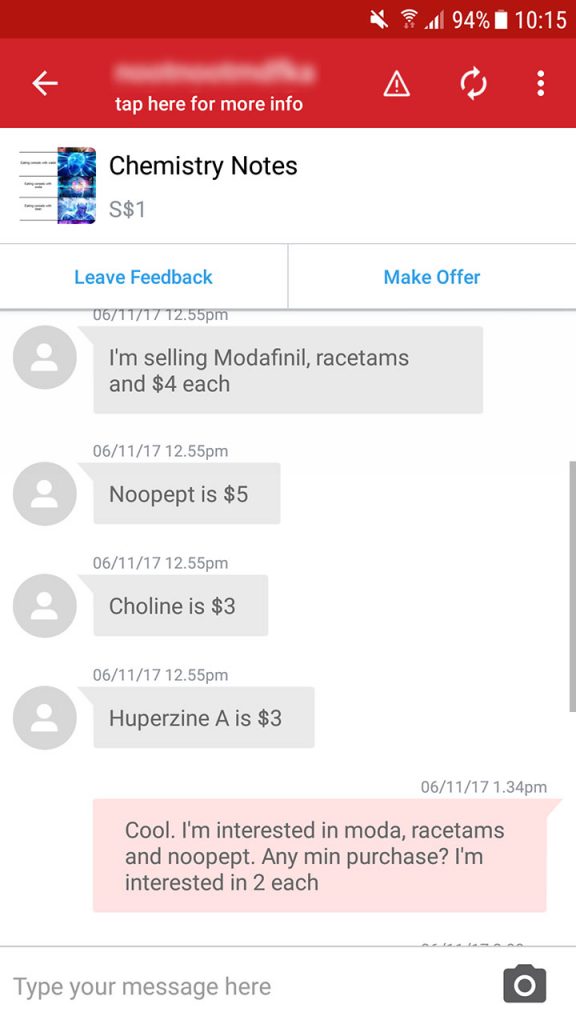
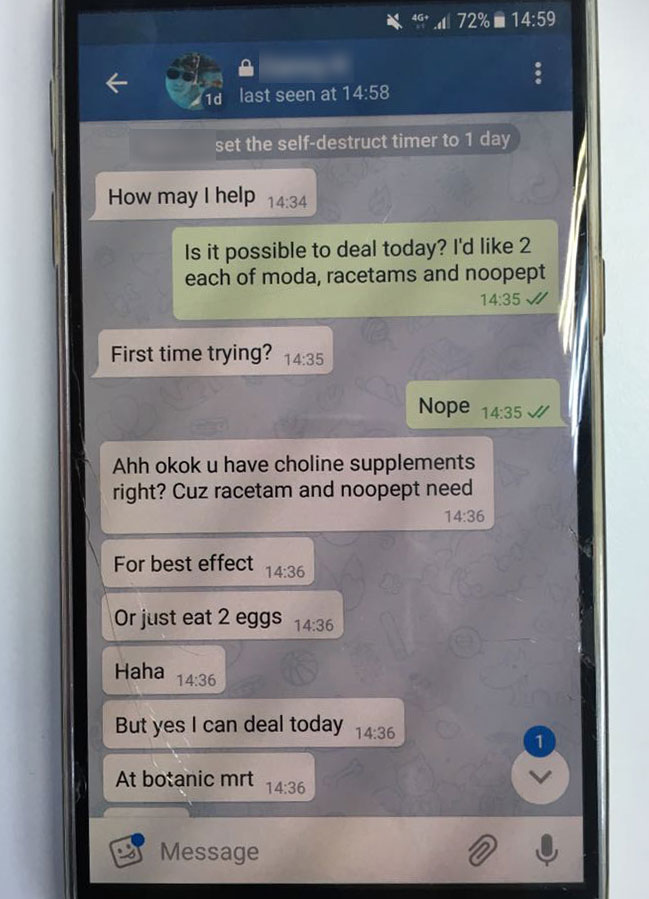
While the modafinil came in the original Modalert-branded packaging, the oxiracetams and noopept pills were prepacked in small Ziploc bags with their names written on it.
If I were really to consume these pills, I would have to trust that they were packed in good faith and I had in fact not been scammed. Worse still, the pills could be harmful or even deadly if they were not the real deal.
A former user of modafinil, John (not his real name), tells me that despite their moniker, nootropics do not actually make you smart.
The film Limitless, which has led to a cult following of nootropics, revolves around a mysterious NZT-48 pill that makes Bradley Cooper’s character seemingly more intelligent.
But it is all a fantasy, as nootropics do not build neural connections in your brain – the underlying factor of increased intelligence.
The effects of heightened concentration and memory power from taking nootropics are most amplified in people who are already of a certain aptitude, says John, “They build from your foundation – the lesser you already have, the milder the benefits. So students who already do not do well in school will not experience huge gains from taking a pill.”
“But if you are already a math or science whiz, your abilities may go through the roof.”
In June this year, The Straits Times reported that smart drugs were increasingly being used by students, some as young as 16, to help with their last-minute exam revision.
Carousell and Telegram were cited as some of the online platforms that made obtaining such drugs much easier.
Five months on, it seems that the ease of access has not been curbed at all.
Other drugs that I had found on Carousell included nitrazepam, a hypnotic drug used for short-term relief from severe anxiety and insomnia, as well as valium, which treats anxiety, alcohol withdrawal syndrome, and seizures.
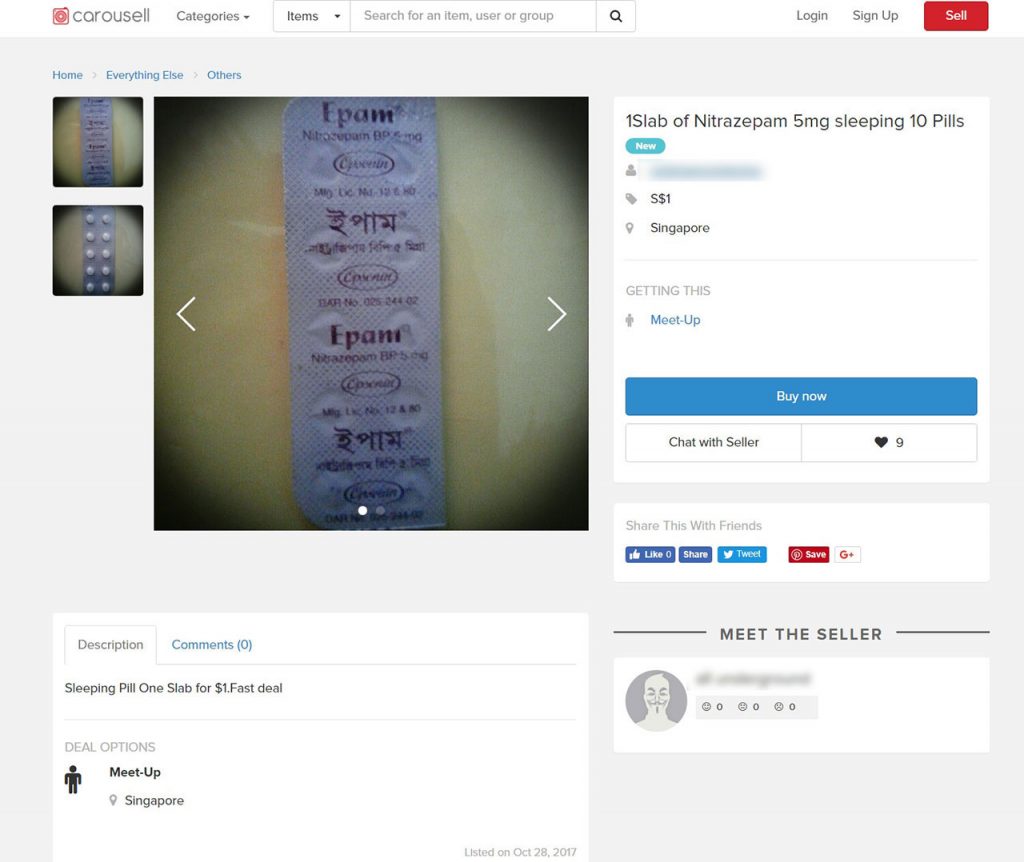
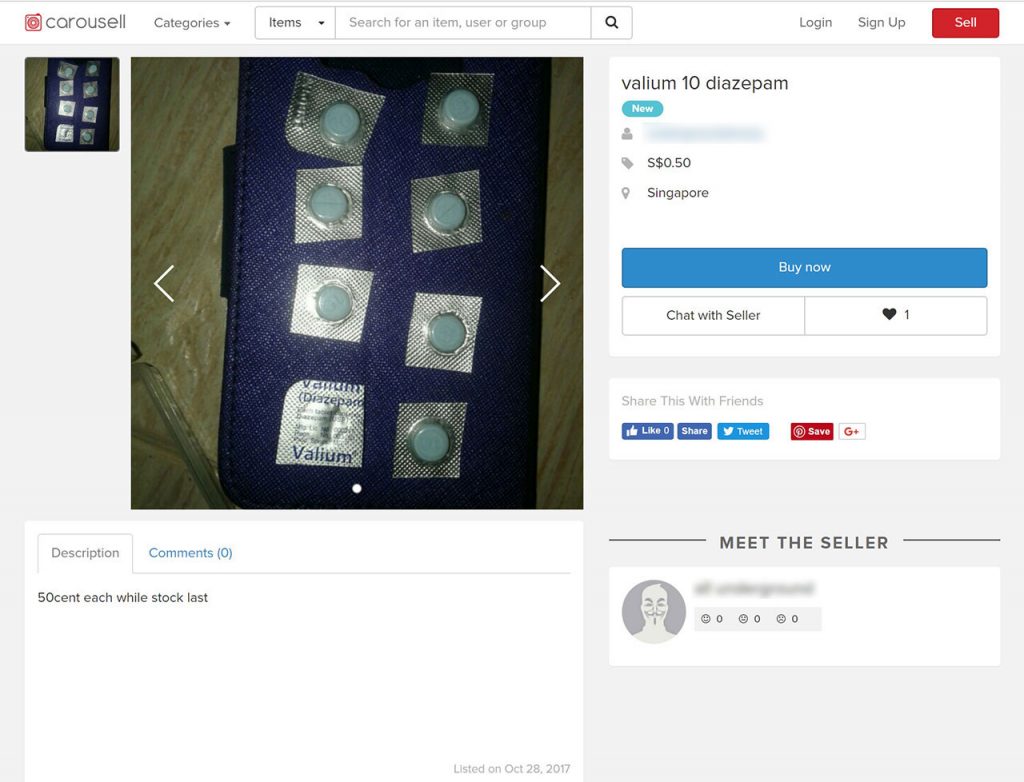
Birth control pills and testosterone injections showed up in the search results.
I was able to purchase two Postinor pills for around $30 dollars which, according to a general practitioner, is about the double the price of that sold at a clinic.
Meanwhile, I was quoted $500 for a box of Testoviron Depot vials to be imported from Thailand.
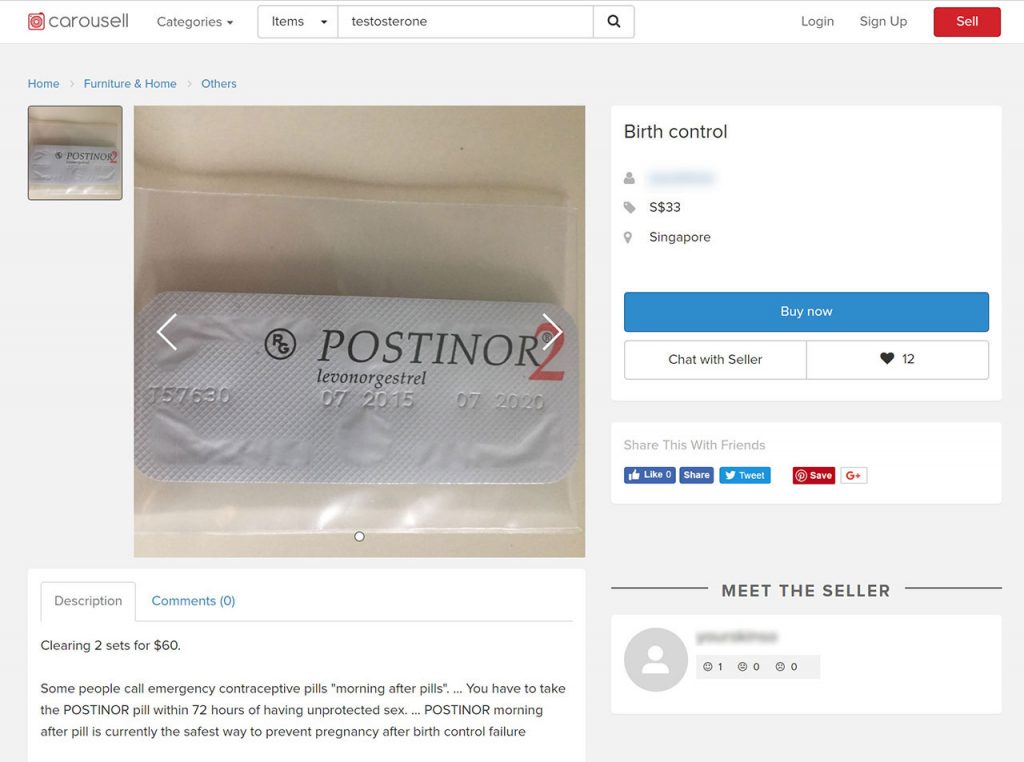
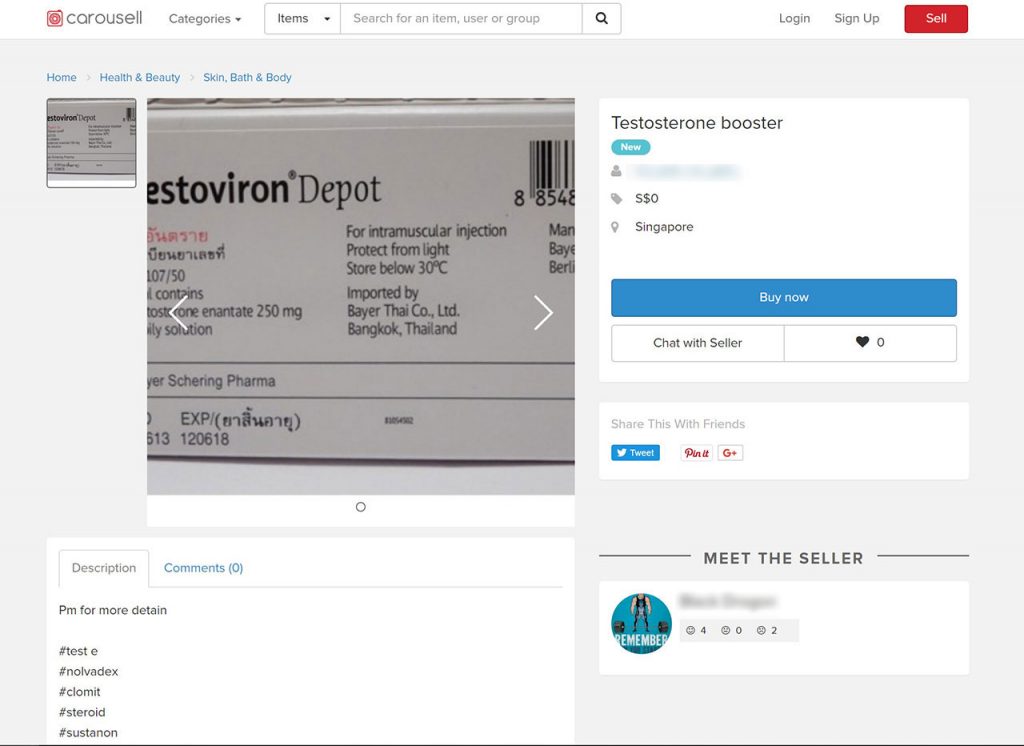
The notion of a Singaporean dark web is unnerving.
A Carousell spokesperson told Rice that the company takes a serious view on prohibited items and will remove them from the marketplace.
“In general, we cooperate with regulatory and enforcement agencies when needed, such as HSA, so that Carousell remains a safe environment for our community. As a first line of defense, Carousell employs the use of artificial intelligence to improve our detection and we have dedicated teams in place to monitor our marketplace.”
The spokesperson added that users should also report suspicious activity to the team so that they could take the necessary actions, and requests to take conversations off Carousell should always be a red flag.
However, my findings over the last couple of weeks suggest that more work needs to be done with Carousell’s AI monitoring system. It was unable to flag the aforementioned drugs, especially when they were listed under nondescript categories.
Sellers dealing with controlled or banned products can easily hide their listings with fake keywords, which makes it harder for Carousell to monitor and regulate the marketplace.
Furthermore, my Carousell contact tells me that he has never had his account deactivated since he started his business.
Who knows what other dubious sellers have been up to on a marketplace that deals primarily with lifestyle and household goods?

